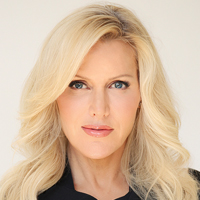Editor’s note: Kimberly Foss is a longtime columnist for Rethinking 65. Read more of her articles here.

Whether due to the death of a spouse, a divorce, retirement or some other major life event, women who find themselves in a process of life transition face unique challenges. In some cases, they are facing the sole responsibility of developing a financial plan for the first time. In other cases, they are entering a new life phase that requires a completely different financial approach from what they are accustomed to.
This is a demographic that bears watching. According to research from McKinsey, the bulk of the $30 trillion wealth transfer from Baby Boomers expected to take place in the next several years is projected to end up in the hands of women. This is just one of the many reasons why it behooves us as financial advisors to make sure that we are working with women in transition in a way that is most helpful.
Because a significant proportion of my practice involves providing financial counseling and planning for women in transition, there are several principles I try to keep top-of-mind that I believe would be helpful to anyone in our industry who wants to better serve this important demographic.
Women Approach Finances Differently Than Men
Women tend to ask more questions than men; it is important to them to clearly understand without feeling they are being talked down to. They also tend to take a different attitude toward risk than their male counterparts. Note that I didn’t say they were more risk-averse; actually, women are willing to accept an appropriate amount of risk, as long as they understand it and how it fits into their overall financial picture.
One important principle that I typically emphasize when I’m working with women in transition is that because they typically live longer than men, they need to plan for long-term growth that will consistently keep up with inflation. Once women understand the nature of the risk-reward continuum with respect to long-term portfolio performance, they are generally willing to do what is necessary for a more secure financial future.
Many Wealthy Women Have Earned Their Money, Not Inherited It
The stereotype of the wealthy widow who got all her money from a deceased husband is not valid for many of the women in transition with whom I work. In fact, according to a 2022 survey, 45% of ultra-high net worth women (those with a net worth of $30 million-plus) built their own fortunes. These are women in or retiring from successful careers as physicians, entrepreneurs, CEOs, or professional services, and they expect intelligent advice that is tailored to their needs and goals.
We also need to do away with the stereotype that women are “worse” at investing than men or that investing is “a man’s game.” Multiple studies confirm that women investors consistently outperform their male counterparts. For one thing, women are more likely than men to stick to an established strategy, rather than “swinging for the fences” on the basis of a hot tip or a short-term trend. Women are also more likely than men to remain calm and disciplined in down markets, which makes them less likely to miss important upswings resulting from attempts to “time the market.”
The Wealth Gap Between Men and Women Persists
Despite improvement over the past couple of decades, women still earn about 84 cents for every dollar earned by their male counterparts who are doing the same work. In terms of net worth, men outpace women in every demographic and age bracket. Even when considering the very wealthy, only about a third of the millionaires in the U.S. are women. What this means when working with women in transition is that it is vital for us as advisors to help them maximize any time advantages that they have.
The earlier we can help women start systematically saving and investing, the more they can make time work for them, rather than against them. This, of course, means helping them overcome the “confidence hurdle” that many women still face with respect to investing and the financial markets. By giving them the right tools and education, we can encourage them to make the best use of time and available resources throughout their investing years.
Women Tend to Underestimate the Needed Resources for Retirement
Several studies have demonstrated that women typically don’t think they’ll need as much money as men, despite the fact that they are likely to live longer. Roughly 36% of unmarried women and 29% of married women think they will need $250,000 or less to fund their retirements. Men, on the other hand, typically estimate they’ll need $500,000 or more. As financial advisors, we need to help them create more realistic projections in order to facilitate more accurate planning.
Women Associate Financial Success with Desired Lifestyle Outcomes, Not Account Balances
Women are more apt to view their goals in terms of being able to live as they wish and to spend their time as they desire. These goals often involve relationships with children, friends, and other valued persons. Men, on the other hand, tend to center their goals around reaching certain financial thresholds.
To sum up, we need to:
- Commit to educating without condescending.
- Acquaint women in transition with the financial realities of divorce, retirement and planning for the future, especially with regard to the amount of “catching up” they may need to do compared with their typically higher-earning male counterparts.
- Find appropriate ways to explain the various risks and rewards associated with various types of investing.
- Counsel women in ways that encourage their independence.
- Help women find motivations that center on their lifestyle goals. We may need to help them consider their children and other significant persons in their lives in order to help them fully visualize their desired financial destination.
Keeping in mind a handful of basic principles and action points can make a big difference in our work with women in transition. The more we can recognize their special needs and incorporate them into our guidance, the more likely it becomes that we can help them create successful outcomes.
Kimberly Foss, CFP®, CPWA, is a senior wealth advisor with Mercer Advisors, practicing in the Sacramento Valley area. The opinions expressed by the author are her own and are not intended to serve as specific financial, accounting or tax advice. Mercer Global Advisors Inc. is registered with the SEC and delivers all investment-related services. Mercer Advisors Inc. is a parent company of Mercer Global Advisors Inc. and is not involved with investment services. Click here for a full disclaimer.







